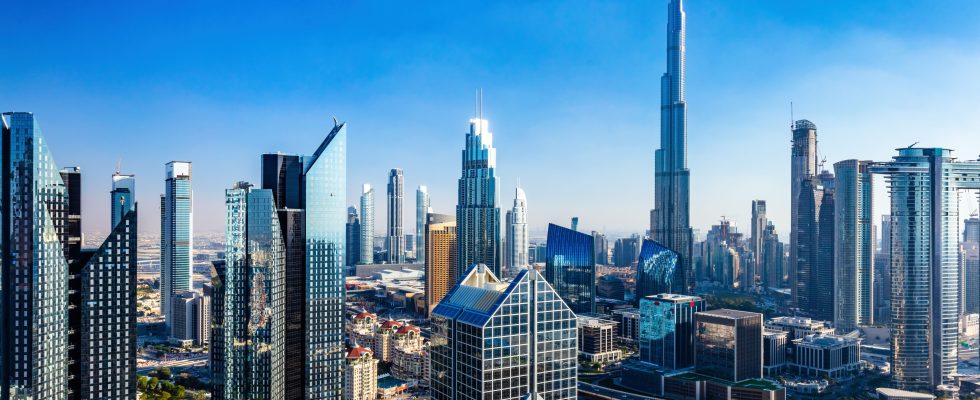Las Vegas by the sea, without the casinos. If Dubai is so often compared to the kingdom of American vice, it is not for its dark side, but for the intoxication caused by its excess: in the emirate, you can visit the largest tower in the world – the Burj Khalifa, 828 meters high -, cross the city on a 16-lane highway, discover the largest floral arrangement on the planet (5 million flowers in the shape of an A380), hurtle down indoor ski slopes… “To appreciate Dubai, you have to appreciate its excesses, says British journalist Sarah Hedley Hymers, based in this city of 3 million inhabitants. You have to try bungee jumping, skydiving, spend a lot of money… Moderation has no place here.”
In twenty years, the small emirate has transformed into an essential destination for the Instagram generation, but also for families looking for fine sandy beaches and safety. Dubai has relied on tourism to develop since the early 2000s. At the time, the emirate was only a commercial port in the Persian Gulf, nestled between Iran and Saudi Arabia, whose leaders begin to make their fortune in oil. Quickly, the latter understand that they will not be able to rest forever on the windfall of black gold, less abundant than among their Gulf neighbors: they open their doors wide to external visitors, and to their wallets. The megalopolis now lives off two main activities, financial services and tourism, with nearly 15 million foreign tourists having stayed there in 2022.
To attract the whole world, Dubai invests massively in hotels and entertainment, but also relaxes the very strict rules which until then governed this Islamic autocracy. The veil is not compulsory for women, alcohol is found in its hotels, and unmarried couples can now share the same room. On the other hand, homosexuality remains prohibited, and freedom of expression non-existent. Order reigns, conducive to business.
Attract the whole world
The emirate also benefits from the relative appeasement of the Middle East. In 2020, the UAE signed the Abraham Accords, normalizing relations with Israel and paving the way for increased trade between the two countries. The main success of the deal so far is proving to be tourism, with hundreds of thousands of Israeli tourists flying into Dubai, enjoying the local attractions and culture. A social development which contributes to the good business of the emirate, which aims to double its gross domestic product (GDP) in the next ten years.
This economic and tourist success of Dubai inspires the entire region: Saudi Arabia, which has set out to become the world’s leading destination by 2030, is closely observing the evolution of its small neighbor, with the objective of taking his place. “On tourism, the Saudis look at Dubai with envy and now want to compete with the Emiratis, underlines Christopher Davidson, Gulf specialist and author of From Sheikhs to Sultanism (Hurst, 2021). Saudi Arabia’s huge entertainment projects will come into direct competition with the Emirates’ offer. It wants to surpass Dubai, become the tourist center of the region and is already selling itself as more authentic, more natural…”
In the Gulf, tourists are considered the black gold of tomorrow. And, in this area, Dubai has taken a disproportionate lead.
